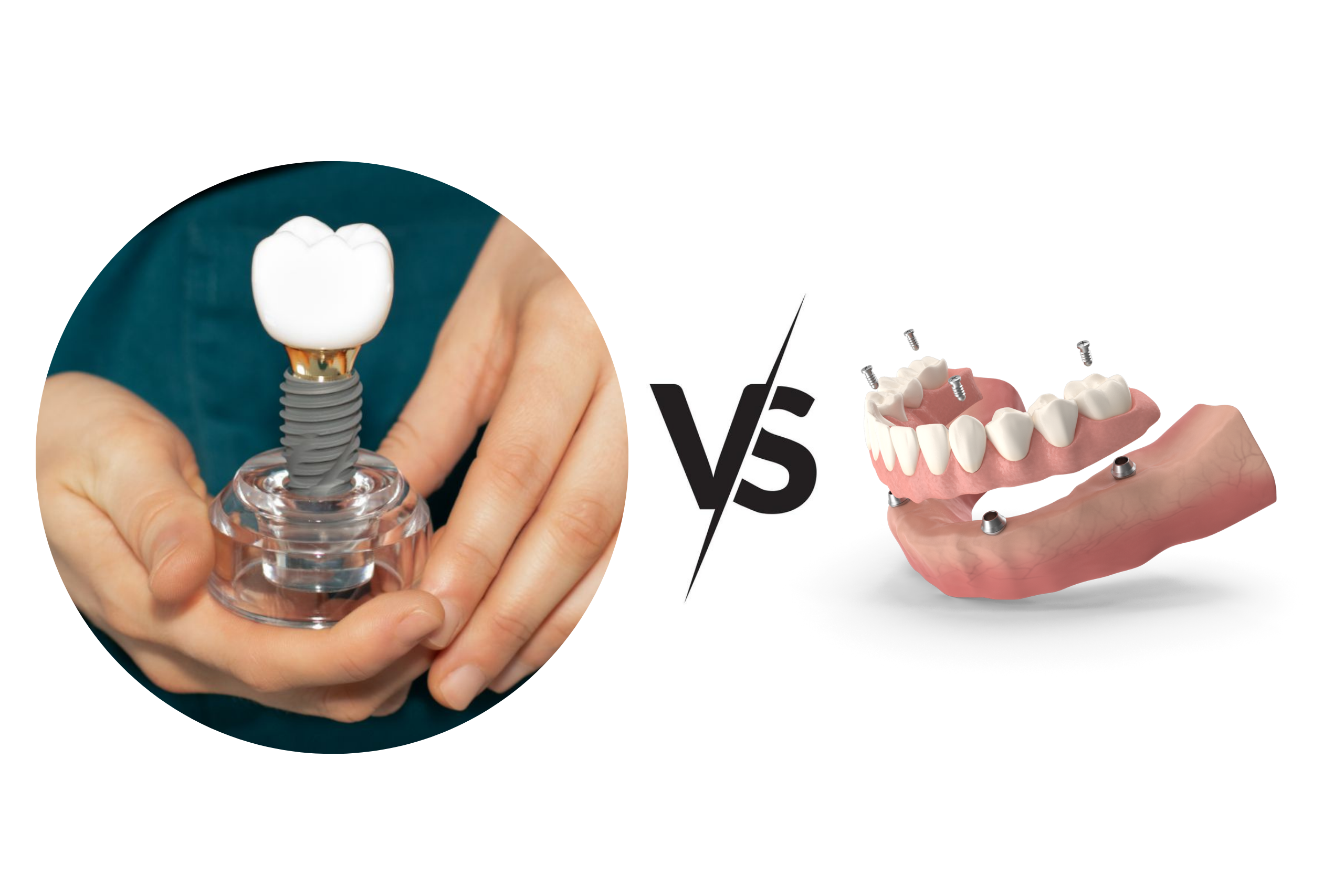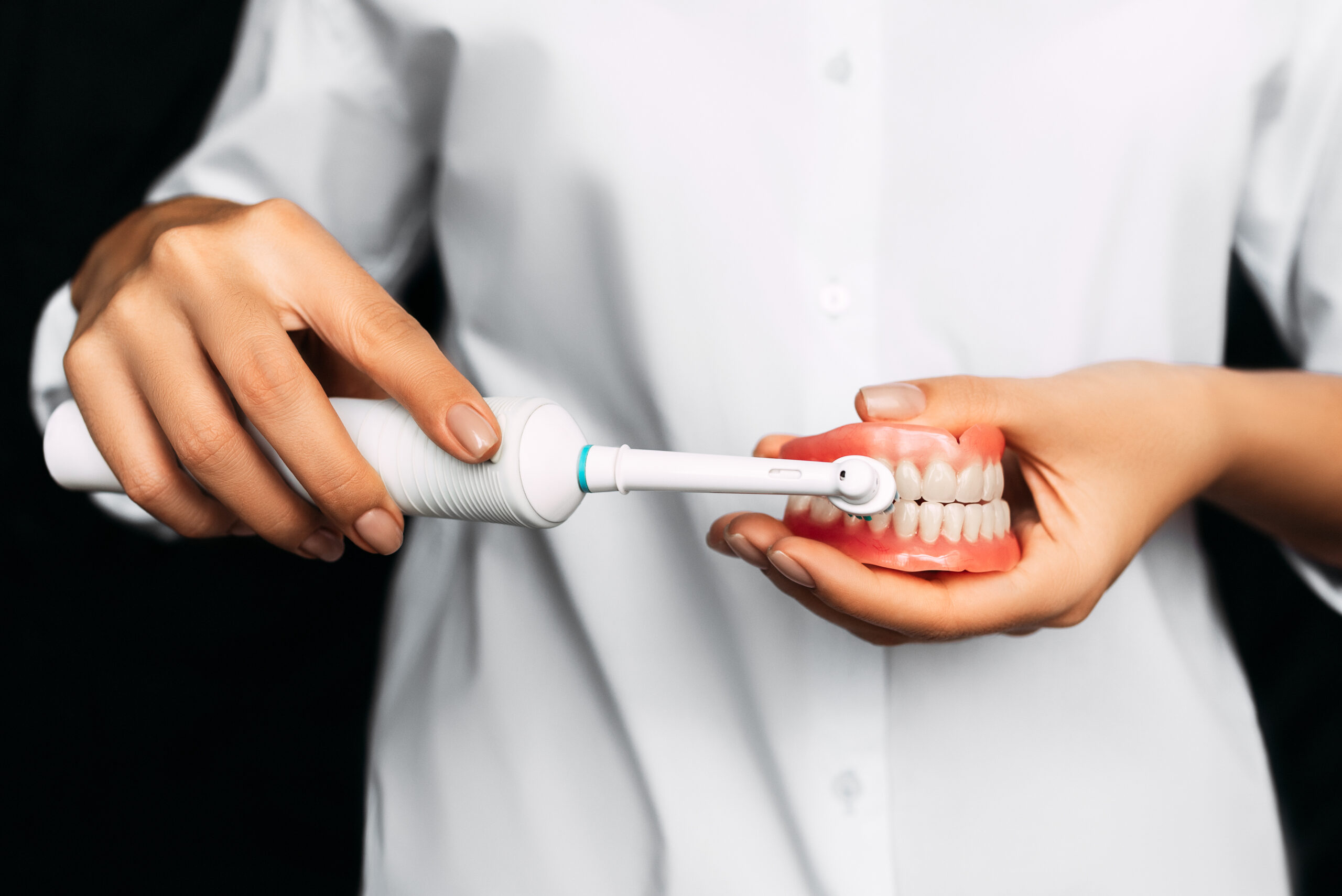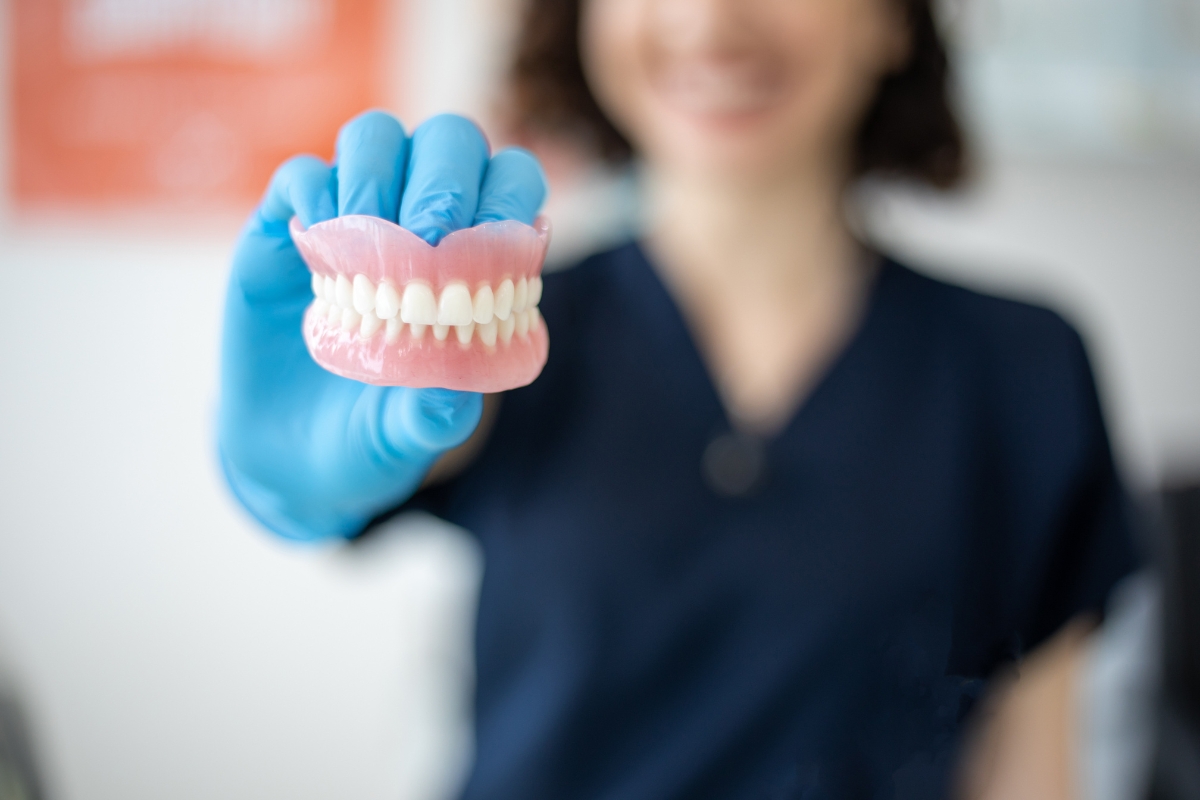We accept Medicare
What to Expect When Getting Dentures?: A Step-by-Step Process

Getting dentures can feel daunting, but knowing what to expect can make the experience smoother and less stressful. If you’re considering these false teeth or have recently been told you need them, it’s natural to feel uncertain. The good news is with a clear understanding of each step, you can navigate the process confidently.
This post will guide you through the entire journey, from your first visit to the final fitting and everything in between. Whether you’re just learning about dentures or preparing for the procedure, this step-by-step guide will help you know what to expect. We aim to make you feel informed and prepared for each phase of getting dentures.
Understanding Dentures
Dentures are removable replacements for missing teeth and surrounding tissues. They help restore your ability to eat, speak, and confidently smile. There are several types of dentures: full dentures, partial dentures, immediate dentures, and implant-supported dentures.
Full options replace all your natural teeth, while partial dentures are used when some natural teeth remain. Immediate ones are placed immediately after tooth removal, and implant-supported options are fixed onto dental implants for added stability.
Who needs these false teeth? Typically, those who have lost most or all of their natural teeth due to aging, injury, or disease may need dentures. Dentures can offer a solution if you’re struggling with eating, speaking, or feeling self-conscious about your smile.
The benefits of these false teeth are many. They can significantly improve your appearance by restoring a natural-looking smile. They also enhance your speaking ability, which may have been difficult with missing teeth. Most importantly, these options help restore your ability to eat a variety of foods comfortably, making mealtime enjoyable once again.
The Step-by-Step Process of Getting Dentures
Step 1: Initial Consultation
The journey to getting dentures begins with an initial consultation. During this appointment, your dentist or prosthodontist will assess your oral health and discuss your needs. The dentist will examine your gums and any remaining teeth and take X-rays to assess the condition of your mouth.
It’s a good time to ask questions about the types of dentures available, the cost, and how long the process will take. Your dentist will explain which type of dentures are best suited for you and provide a clear timeline for the procedure.
Step 2: Impression and Measurements
Once you’ve decided on the type of dentures you need, your dentist will take impressions of your mouth. This is a painless process where the dentist uses a soft material to mold your gums and any remaining teeth. These molds are crucial for creating these false teeth that fit perfectly.
The dentist will also take precise measurements of your mouth to ensure the dentures are comfortable and functional. If you’re feeling anxious about this part, let the dentist know. They can offer tips to make the process more comfortable, such as using numbing gel or taking short breaks during the procedure.
Step 3: Try-In Appointment
After the impressions are made, the next step is the try-in appointment. During this visit, you’ll be given a set of temporary ones to test for fit and comfort. These temporary dentures will be used to make adjustments to the final product.
Your dentist will check the fit, and you can share how they feel. If you experience any discomforts or areas that need fine-tuning, your dentist will make the necessary changes to ensure a perfect fit.
Step 4: Final Fitting and Delivery
When your permanent dentures are ready, you’ll return to your dentist for the final fitting. The dentures will be placed in your mouth, and your dentist will check for any adjustments needed. Some discomfort or soreness may occur at this stage, but it’s completely normal. Your dentist will help you make any final adjustments for comfort.
It may take you a few weeks to get fully used to wearing them, so don’t worry if it feels a bit strange at first.
Step 5: Getting Used to Your New Dentures
The adjustment period can take some time. In the beginning, you might experience challenges when speaking or eating. Speaking may feel a bit awkward, and you may have difficulty chewing certain foods. However, these challenges are temporary.
Helpful tips include using denture adhesive to keep them in place, practicing speaking out loud to improve your comfort, and slowly reintroducing different foods. Over time, your muscles will adjust, and you’ll feel more comfortable wearing these false teeth.
Step 6: Maintenance and Care
Daily cleaning is essential to keeping your dentures in the best condition. Brush them with a soft-bristled brush and use a denture cleaner. To keep them fresh, soak them overnight in a cleaning solution.
Regular checkups with your dentist are also important to ensure that your dentures still fit properly and are in good condition. Long-term care involves adjusting your dentures as needed and replacing them if they become worn out.
Common Concerns and Myths
Many people have concerns about wearing these false teeth. One common worry is pain or discomfort, especially during the adjustment period. While it’s normal to experience some discomfort, it usually subsides after a few weeks. If you experience persistent pain, it’s best to consult your dentist.
Another myth is that eating with dentures is impossible or uncomfortable. While it can take some practice, you can eat most foods with these false teeth. Start with softer foods and gradually work on more challenging items like meat or apples.
As for appearance, modern ones look incredibly natural. With advancements in dental technology, dentures are now designed to blend seamlessly with your natural gums and teeth, giving you a beautiful, realistic smile.
When to Seek Professional Help?
While dentures can bring many benefits, there may be times when you need professional assistance. One sign that your dentures may need adjustments is if they start to feel loose or uncomfortable. This can happen due to gums, or bone structure changes over time.
Another common issue is sores or irritation caused by poorly fitting dentures. Contact your dentist immediately if you notice sores that don’t heal or pain that worsens. Loose dentures, discomfort, or difficulty eating may also signal that it’s time for a fitting adjustment.
Getting dentures can feel like a big step, but with the right preparation, it’s an experience that can vastly improve your quality of life. From your initial consultation to long-term care, understanding what to expect at each stage will make the process easier and less stressful. While the adjustment period may take some time, remember that it will be worth it.
With improved appearance, better speech, and easier eating, dentures can help you regain confidence in your smile. If you’re considering dentures or have questions about the process, schedule a consultation with our dentists today.



